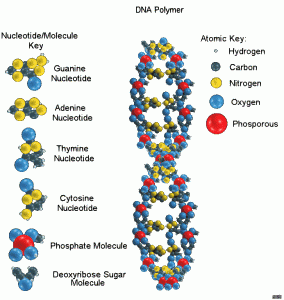Evolutionary developmental psychopathology
Clinical taxonomy will tend to reflect a nonepistemic agenda that is itself mutable according to the strictures established by prevailing norms and resources. This conclusion implies that the search for a single scheme of psychiatric classification capable of serving the needs of both researchers and clinicians may well be futile. EVOLUTIONARY DEVELOPMENTAL PSYCHOPATHOLOGY by Ian […]
Clinical taxonomy will tend to reflect a nonepistemic agenda that is itself mutable according to the strictures established by prevailing norms and resources. This conclusion implies that the search for a single scheme of psychiatric classification capable of serving the needs of both researchers and clinicians may well be futile.
EVOLUTIONARY DEVELOPMENTAL PSYCHOPATHOLOGY
by
Ian Pitchford
In contemporary psychiatry therapeutic intervention and scientific research into the nature of mental disorders are guided by an avowedly atheoretical scheme of classification. I argue that useful concepts for a science of psychopathology are those representing projectable categories, and that such categories delineate natural kinds, or non-arbitrary aspects of the world that facilitate the identification of lawful regularities and thereby permit reliable extrapolation from observed to unobserved instances. The search for these natural kinds should be guided by the theoretical principles of an approach I have named ‘evolutionary developmental psychopathology’. This perspective holds that the allocation of causal co-determinants to opposing explanatory schemata inspired by well-established dichotomous approaches undermines our understanding of human psychology and psychopathology by obscuring the perception that the features of biological organisms are constructed by a plethora of disparate developmental resources that share comparable informational or causal status. An emphasis on both proximate and ultimate causes combined with an appreciation that human minds are composed of developmentally plastic, polymorphic, and sexually dimorphic psychological mechanisms, which are subserved by distributed neural components that participate in the functioning of more than one faculty, allows us to re-evaluate existing data and to formulate new hypotheses capable of integrating results from seemingly unconnected domains. However, because our attitude towards the treatment of disorders or problems of any kind necessarily involves a complex psycho-social cost-benefit analysis, I contend that clinical taxonomy will tend to reflect a nonepistemic agenda that is itself mutable according to the strictures established by prevailing norms and resources. This conclusion implies that the search for a single scheme of psychiatric classification capable of serving the needs of both researchers and clinicians may well be futile.
Contents
Chapter 1. Introduction: Genealogical Actors in Ecological Roles
3
Chapter 2. The Separation of Contradictory Things
7
Chapter 3. The Problem of Classification in Psychiatry
35
Chapter 4. Evolution and Human Nature
71
Chapter 5. The Society of Mind
107
Chapter 6. Evolutionary Developmental Psychopathology
154
Bibliography
228
Full Text Options (Right-Mouse-Click and select ‘Save Target As…’)
RTF (Rich Text File, suitable for MSWord, Works, MacWorks etc), 280 Pages, 971kb
Opening paragraph:
How can psychiatric nosology generate an epistemic benefit, and can a scientific taxonomy of mental disorders ever be entirely coextensive with a clinical taxonomy of such disorders? I shall argue that useful taxonomic concepts for a science of psychopathology are those representing projectable categories, and that such categories delineate natural kinds, or non-arbitrary aspects of the world. I shall also argue that because our attitude towards the treatment of disorders or problems of any kind necessarily involves a complex psycho-social cost-benefit analysis, clinical taxonomy will always reflect a nonepistemic agenda that is itself mutable according to the strictures of prevailing norms and resources. These considerations imply that the search for a single psychiatric taxonomy based on the natural and human sciences and capable of accommodating the needs of both clinicians and researchers could be futile, and that a clear acknowledgement of the differing ends of psychiatric treatment and research into psychopathology should be a starting point in the classification of mental disorders.
Comment:
I solicited a casual comment from Jay R. Feierman as this is more his area – I think the comments are appropriate for posting (though I didn’t mention this possibility to him at the time):
“I read this thesis. Thanks. It’s very interesting. I agree with much of it. The DSM-IV was developed as a purely descriptive classification because of the political infighting in the American Psychiatric Association regarding the role of psychoanalysis in American psychiatry in the early 1970s. To get away from the psychodynamic versus genetic or biological cause controversy, the later DSMs purposely became a purely descriptive taxonomy. That needed to happen, at least until the last of the influential psychoanalysts have retired or died. Prior to about 1980, the psychoanalysts controlled the American Psychiatric Association politically. Even the American Board of Psychiatry and Neurology Certification examinations in psychiatry were controlled by the psychoanalysts until the mid 1980s. I finished my psychiatric training in 1975 but didn’t take the Board examinations until 1989, when there was almost nothing asked about psychoanalysis. I believe a new taxonomy of psychiatric disorders will emerge eventually, based on whatever discipline has the most political influence on the field. If evolutionary psychology can come up with a counter-intuitive understanding of a psychiatric disorder that leads to an effective treatment, then evolutionary ideas might be included in a post DSM nosology. McGuire and Trossi wrote a book with an evolutionary taxonomy for psychiatry about 10 years ago. It has been virually ignored by mainstream psychiatry, mainly because it doesn’t show evidence that this approach is better than existing purely descriptive approaches.”






